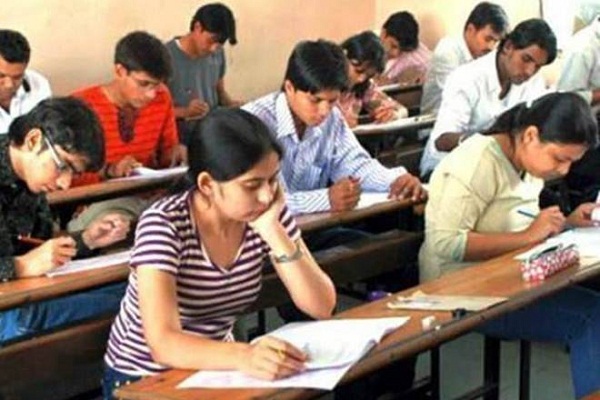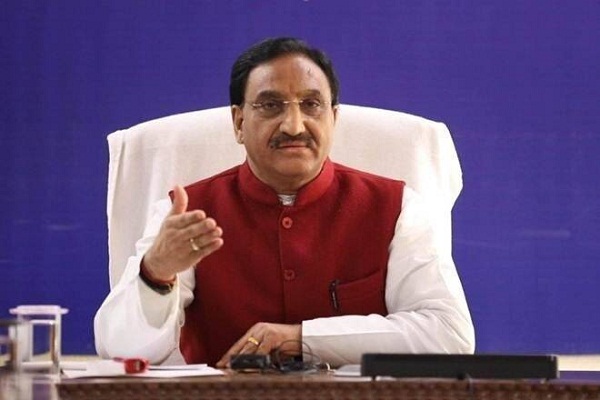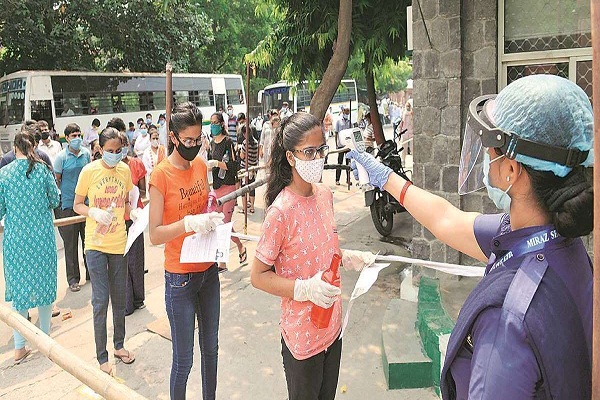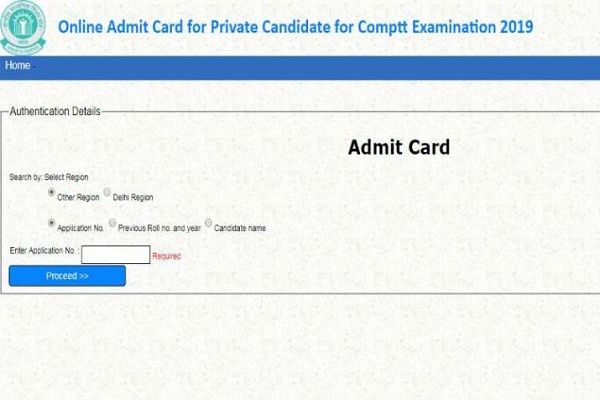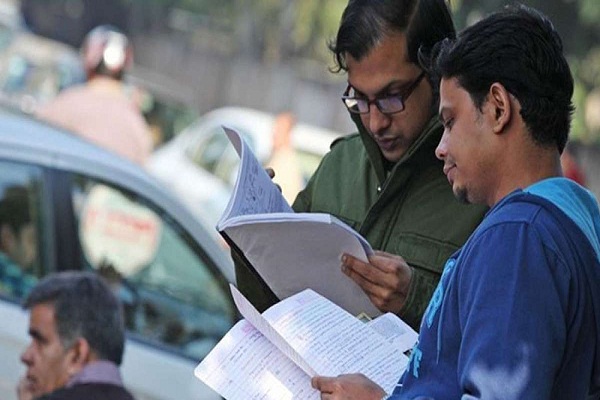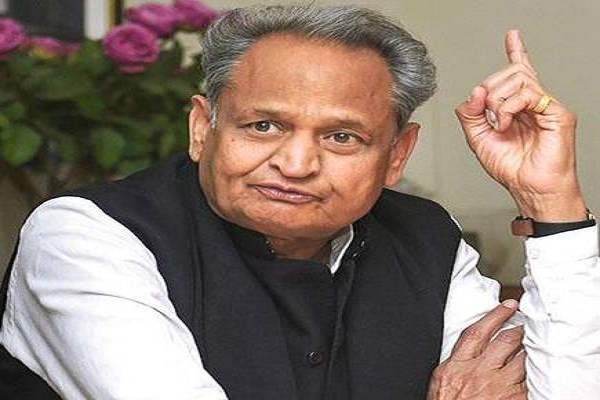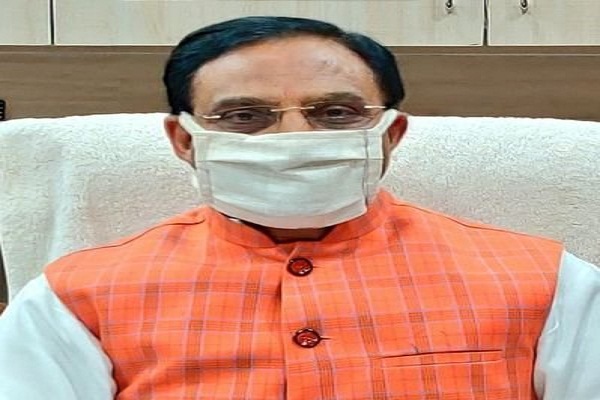India has undergone a transformation in recent years, with technology playing a pivotal role. In the midst of a digital revolution, educators and policymakers are increasingly focusing on digital learning.
Technology has undeniably redefined the field of education, mostly for the better. Until a decade or two ago, students had no option, but to struggle with various reference books to learn a chapter or topic. Today, they can just go online and access endless learning resources; all from the comfort of their own homes.
There are various Ed-Tech platforms that offer personalised learning, video tutorials and 24×7 doubt assistance, all in an effort to improve learning. As personalised learning becomes the norm, students are now opting for Internet-based smart learning over traditional learning.
The new National Education Policy also advocates the usage of technology in school education. The implementation of coding from class 6 and the blended mode of learning is a welcome move.
Elets digitalLEARNING Magazine organized virtual conclave “School Leadership Summit, South India” on 29th August 2020. The conclave highlighted the challenges and opportunities of National Education Policy.
Dr Ravi Gupta, Editor-in-chief, digitalLEARNING Magazine and CEO, Elets Technomedia Pvt Ltd. welcomed the speakers in the inaugural session.
During the inaugural session, Anil Swarup, IAS, Ex. Secretary, Education, MHRD, Govt. of India said “The NEP 2020 is a great visionary. The focus on early childhood is a great idea in the policy. To get child educated early with learning outcomes is the biggest aspect and the focus on mother tongue from Class 1 to 5 is commendable. Vocational training can be good for students in long run. The NEP also talks about focus on teachers training and selections.”
Swarup also said “The NEP has not recognized the roles of private schools as 50 pc of students are going to private ones. The role of NGOs in education sector has also been ignored. The most challenging part is funds for implementation of NEP.”
He also added, “This policy advocates flexibility in subjects, which is a great idea. The policy will be applicable on all schools across the country. But the policy doesn’t mandate anything. It enables people to move in the direction they want to move.”
He also said, it would be difficult to standardize the fees structure.
During the industry presentation, Shiva Prasad G Desai, Head of Product Development, KYS Systems said “We have tools which can help teachers in every way. We have a question bank of 20,000, which can help teachers to save time and enhance their productivity. In our LMS, teachers can share videos with students. We ensure safe browsing during the exam”.
Also read: New Education Policy 2020- Approaches, Opportunities and Challenges
In the first panel, the discussion highlighted New National Education Policy 2020: Ground Implementation and Future Challenges Landscape
Dr. D. Usha Reddy, CEO, Meridian Group of Schools, Hyderabad said “The National Education Policy advocates 10 bag less days which is good idea. Now, students have freehand to choose their subjects. The progression is very important. We must focus on teacher training as it can enhance the quality of education. “
She also said “The same curriculum is handled by schools differently. The basic of content is same only the pedagogy is different in schools. Each state has different issues in education sector. The govt and private schools must come on one-page for improving education. Investing in digital infra must be main focus of schools”.
Mir Hafeezuddin Ahmed, CEO, Nasr Education Society, Hyderabad said “The NEP is a great leveler for all the boards. The NEP advocates the basic teaching facilities for students and catapults us to a better future. Now, students will be encouraged to take up other vocational courses.”
He also said “The NEP will standardize the education. Most private schools are doing better and it will not difficult for them to implement. The new policy will stop juggling of private schools.”
K Prabhakaran, Headmaster, The Lawrence School, Lovedale, Ooty said “We are slowly moving towards experiential learning. The NEP focuses on multiple entry and exit points. The new policy will break many barriers and stereotype subjects have to go. The policy will give flexibility to students to choose subjects. The implementation will be a huge challenge.”
He also said “It’s a very holistic idea and we have to come out of our comfort zones. We must change competitive to collaborative mind set to tackle the crisis.”
Time frame and transition, centre-state conflicts, we are not doing justice to education, he added.
Usha Iyer, Director, The Bangalore School, Bengaluru said “The implementation of NEP will be a challenge for government schools. The policy also focuses on education for all. The NEP is also focuses on teacher training and providing gadgets to students and teachers and will be implemented phase wise.”
She also said they have a programme named “teach one each one”. Mind-set of teachers need to be changed over the digital education, she added.
Digital literacy and blended learning must be given priority and parents need to also change their mind set, she added.
Amit Kumar Jain, School Director, Oakridge International School, Visakhapatnam said “We must start spending more on education. The implementation of NEP is the key. The policy is a child-centric and it’s about holistic development. The pairing of schools is also important in coming days. “
Amey Parulekar, Head – Sales, Financepeer said “We are working with over 2000 institutions across the country. Financepeer takes care of entire fees collection and it’s paperless. It helps the schools to boost the admissions. We also provide LMS support for schools.”
Girish Nair, Founder & CEO, Curiosity Gym- “Curiosity Gym has developed NEP aligned experiential learning and computational thinking courses for teachers and students. Teachers can use the curriculum and take tests during the class presentation. The time has come for India to lead the world. Indians are very innovative and we must prepare our children when they are young.”
In the second panel: Financial Survival Strategies Amid Crisis: Emergent Resource And Implementation
Sapnu George, Executive Director, Trivandrum International School, Cochin International School, said “The fees collection is back on track. The foundation of learning has been jolted due to pandemic. The schools must support teachers in every way. The timing of NEP is good and will help the education sector to grow immensely. The collaboration will enhance the quality of education.”
Sirish Turlapati, Chairman & Managing Director, Iris Florets Happy Play School, Hyderabad said ”Pre-schools are the most affected in this pandemic. There are no admission and clarity on providing online classes to toddlers. But now, everything became normal and students are taking online classes. We are trying to do everything possible for children and parents are also supporting us effectively”.
Amey Parulekar, Head – Sales, Financepeer said “There is a certain surge in price seen in school education. We can take this as an opportunity to train staff for online mode. With online mode, teachers can save time and use them more productively. The technology has changed the dynamic of education and it has taken things beyond the classroom.”
Dr. Kavita Bajpai, Director, The International School of Thrissur, Thrissur said “Education is mostly affected in this pandemic. This is a real challenging times for everyone. Educators are putting their heart and soul in this crisis. With time a parallel system has just started to work for both parents and schools over fees collections.”
Dr Bajpai said “There must be an understanding between schools and govt. A solution required for guidelines in coming days.”
G. Santhosh Ram Chary, Principal, Shree Swaminarayan Gurukul International School, Hyderabad, said “Government, Schools, and parents are key stakeholders and have to take care of school education. The govt must support private schools in this crisis. The govt must concentrate on competition of schools, which has surged the commercialization of education.”
He also said “There is a lack of communication within schools and parents. The schools and govt must convince parents over the safety measures if they are planning to re-open. “
In the third panel: Tackling The Innovation In Virtual Revolution Of Education To Engage Students
Dr. Sarada Chandrasekaran, Academic Director, Whitefield Global School, Bangalore said “With virtual classes, schools evolved a lot during the pandemic. We must go beyond the project-based learning and make it most creative for students. Innovate ways came when teachers are pushed to the wall. Now collaborative learning is the new thing.”
She also said Assessment will be a main challenge and we need to find innovate ideas to deal with it.
Shanti Menon, Founder Principal, Deens Academy, Bengaluru said “All the activities in schools have gone digital. The new revolution has saved time, better learning experience, quality has enhanced. Initially, teachers found the situation bit scary but with time they adapted to it. Teachers started to enjoy teaching online within a week. However, the students adapted technology much faster. “
She also said technology has empowered teachers and now they are looking for new options to impart lessons.
However, she said the touch and feel of children are missing. Schools should talk with children to make them comfortable in this crisis, she added.
Meghana Musunuri, Founder & Correspondent, Fountainhead Global School, Hyderabad said “Innovative learning started a decade ago. Before pandemic, there were certain limitation for schools but now, they are a part of the change. Initially, teachers were not tech-savvy but have adapted it and evolved with time.”
However, she also said “The technology is here to stay but the school environment cannot be replaced.”
We need to focus on digital literacy and teachers’ training to evolve our education system, she added.
Anjali Razdan, Director Education Solan Public School HP said “There is a paradigm shift in education sector. The virtual evolution is for better and very progressive for the sector. It is task for teachers to adapt the technology. It’s a paradigm shift for teachers. The kids have adapted technology very easily.”
Assessment needs to be changed and more innovation needs to be brought into education, she added.
Sreekanth B. Kogannti, Director, Kennedy School, Next Gen Kids International Schools, Guntur said “The adaption of digital education has been mandatory due to COVID crisis. If technology is used well then it can enhance the quality of education. The crisis has accelerated the digital move in education sector.”
Assessment must not grade children and we need to change the way of examining children. The pandemic has forced us to create new ways of assessments, he added.
In the last session: Building digital literacy in teachers & defining technological advancement among learners.
Rajini Chitra, Director Academics, Pollocks Intelli School, Visakhapatnam said “Technology is a tool for education. We need to understand the needs of the students, schools and parents. Smart investment and proper usage is the need of the hour.”
She also added, “NEP is the need of the hour. Digital Infra is very vital for govt schools. There is a digital and language barrier within the country and we need to fill the gap. It has to come from bottom to top. Training teachers is must and must focus on creating a pool of teachers for future.”
Dr. Eshwari Prabhakar, Principal, Delhi Public School, Anandapuram, Visakhapatnam said “Technology is omnipresent but we never used it. There must be blend of understanding within the teachers. Adaptability is the main core in these testing times.”
She also said “Education and technology are both interlinked. Earlier, the technology was there but we were not using it. The virtual learning has replaced the impersonal learning in this pandemic. We must focus on traditional teaching through digitalization”.
For the implementation of NEP, training teachers and proper investment is very vital. Storing technology is also important. A teacher must digitize its own content, she added.
Girish Ramamurthy, Chairman, KYS Infosystems said “Digitization of education had happened a long time ago. Digitization is not a challenge or an alien to adopt. There are various tools available and if you want to learn anything is possible. Digitization of education is great news and it should have happened a long time ago.
He also said “Teacher and student bonding is very important for education. Education must involve human interaction. It is important to keep balance and how to use digitization is important. A teacher is the best content developer. “







